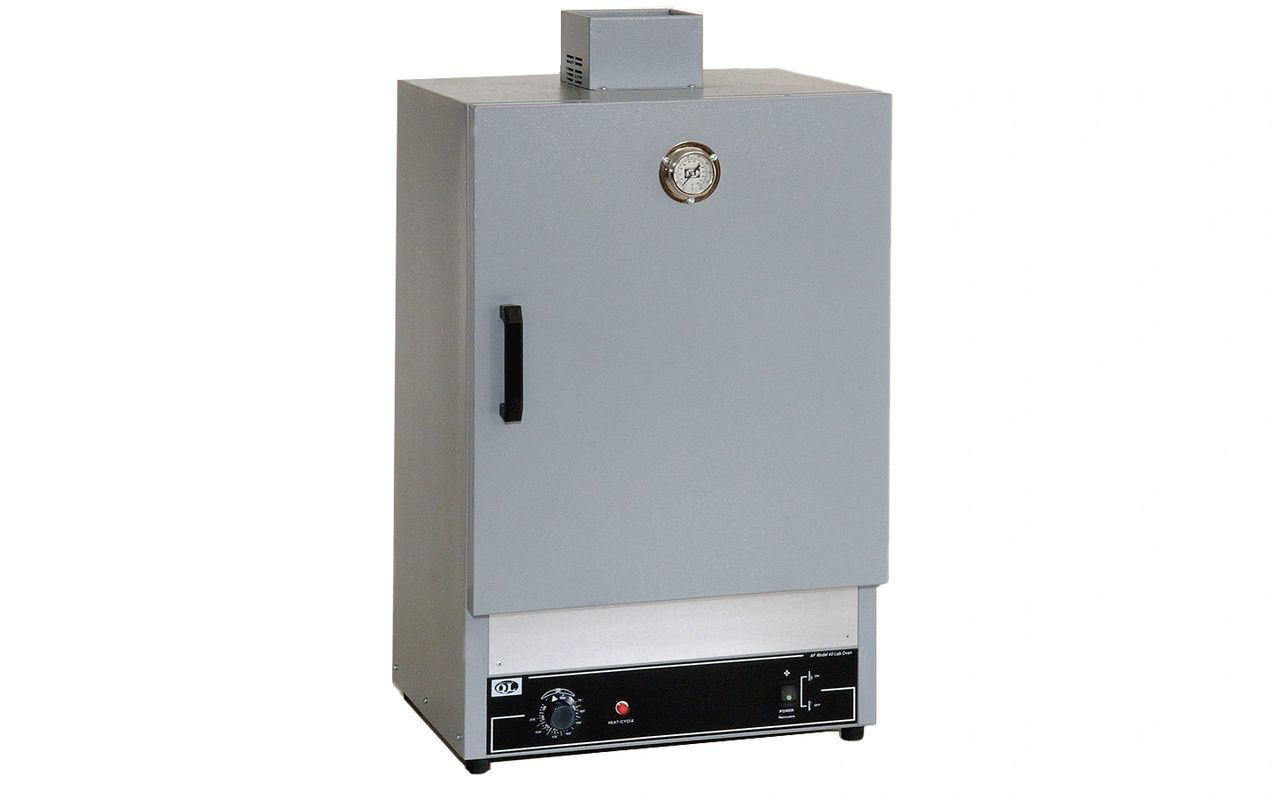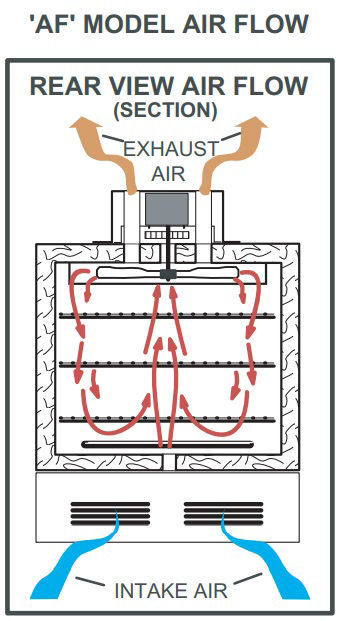Quincy Lab Analog Forced Air Ovens
Quincy Lab Analog Forced Air Ovens offer forced air circulation allowing for a more uniform distribution of heat throughout the chamber, which also facilitates evaporating. They are designed to meet the laboratory needs of industry, research organizations and schools. Well-crafted and versatile, they are used for part drying, baking, curing, sterilizing, evaporating, heat treating, annealing, and testing, as well as many more applications.
- Circulating fan provides air circulation for improved uniformity
- Bi-metal thermostat (10AF) or hydraulic thermostat (20AF, 30AF & 40AF)
- Accuracy of ±3°C
- Over-temperature safety alarm which will shut the unit off in the event of a runaway condition until oven is manually reset
- Corrosion resistant aluminized interior
- Resistive-tubular incoloy heating elements
- 1" inch of high density mineral wool insulation
- Insulated steel doors with high impact thermoplastic handles
- 2 adjustable and 1 fixed nickel plated shelves
- Baked in scratch-resistant powder coated finish
- 24 month factory warranty
Advanced Design
Cabinets are as attractive as they are durable. Exteriors are painted light gray and have a hard, scratch-resistant hammer finish. Doors open with high-impact thermoplastic handles. Cabinets have heavy steel double-wall construction. Workspace is insulated from the outer cabinet with one inch of high-density mineral wool, and interiors are made of corrosion-resistant aluminized steel.
Controls
Quincy Lab uses quality UL and CSA recognized components in all ovens. The control panel is equipped with an illuminated ON/OFF rocker switch and a heat-cycle pilot light. Temperature is controlled by automatic hydraulic or a bimetal thermostat (10GC only). Hydraulic models offer convenient temperature dial markings in both centigrade and Fahrenheit.
Heating Elements
Energy-efficient, low-watt density incoloy sheathed elements are engineered into a compact design for quick run-up and recovery times. Temperature uniformity is greatly improved by a perforated heat shield which absorbs radiant heat and distributes it more evenly.
You've got questions, we've got answers.
Reach out and let's see what we can do together.

